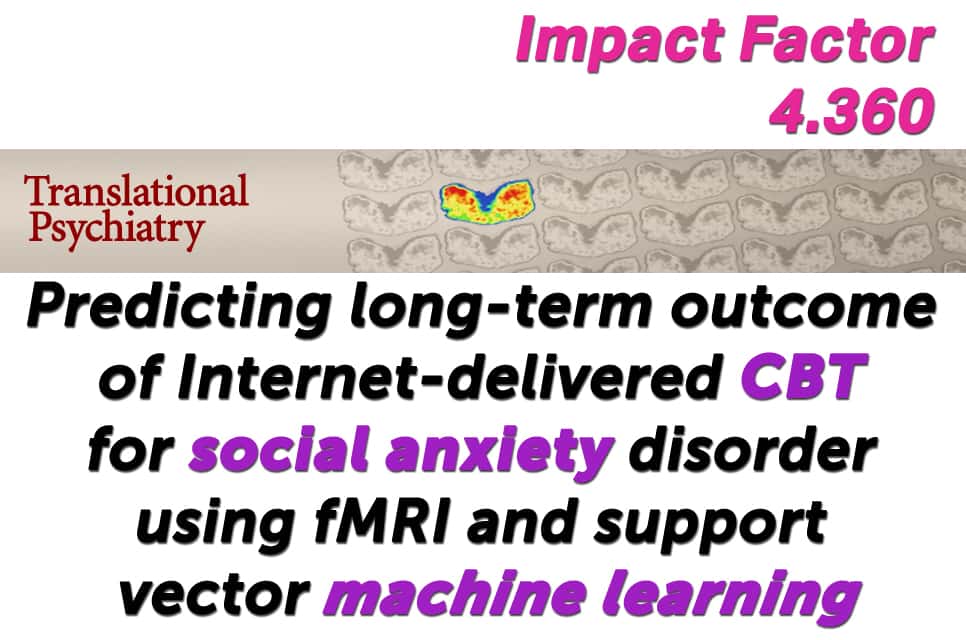Today we published a new study in the Nature journal called Translational Psychiatry (impact factor 4.360). The paper was about cognitive behavior therapy (CBT) and what happens in the brain after treatment.
It is known that CBT is an effective treatment for social anxiety disorder (SAD), but many patients do not respond sufficiently and a substantial proportion relapse after treatment has ended. Predicting an individual’s long-term clinical response therefore remains an important challenge. This study aimed at assessing neural predictors of long-term treatment outcome in participants with SAD 1 year after completion of Internet-delivered CBT (iCBT). Twenty-six participants diagnosed with SAD underwent iCBT including attention bias modification for a total of 13 weeks. Support vector machines (SVMs), a supervised pattern recognition method allowing predictions at the individual level, were trained to separate long-term treatment responders from nonresponders based on blood oxygen level-dependent (BOLD) responses to self-referential criticism. The Clinical Global Impression-Improvement scale was the main instrument to determine treatment response at the 1-year follow-up. Results showed that the proportion of long-term responders was 52% (12/23). From multivariate BOLD responses in the dorsal anterior cingulate cortex (dACC) together with the amygdala, we were able to predict long-term response rate of iCBT with an accuracy of 92% (confidence interval 95% 73.2–97.6). This activation pattern was, however, not predictive of improvement in the continuous Liebowitz Social Anxiety Scale—Self-report version. Follow-up psychophysiological interaction analyses revealed that lower dACC–amygdala coupling was associated with better long-term treatment response. Thus, BOLD response patterns in the fear-expressing dACC–amygdala regions were highly predictive of long-term treatment outcome of iCBT, and the initial coupling between these regions differentiated long-term responders from nonresponders. The SVM-neuroimaging approach could be of particular clinical value as it allows for accurate prediction of treatment outcome at the level of the individual.
[lightbox link=”http://www.carlbring.se/wp/wp-content/uploads/2015/03/TP_brain.jpg” thumb=”http://www.carlbring.se/wp/wp-content/uploads/2015/03/TP_brain.jpg” width=”822″ align=”left” title=”TP_brain” frame=”true” icon=”image” caption=””]
Read the full paper (open access):
Månsson, K. N. T., Frick, A., Boraxbekk, C-J., Marquand, A. F., Williams, S. C. R., Carlbring, P., Andersson, G., & Furmark, T. (2015). Predicting long-term outcome of Internet-delivered cognitive behavior therapy for social anxiety disorder using fMRI and support vector machine learning. Translational Psychiatry, 5, e530. doi:10.1038/tp.2015.22
